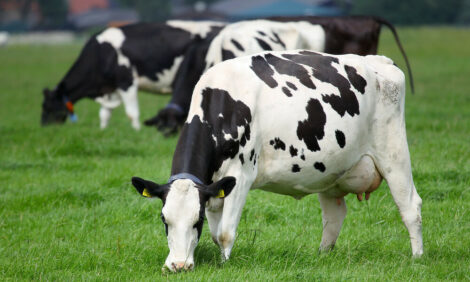



NCBA Continues To Call for Death Tax Reform
US - The National Cattlemen’s Beef Association (NCBA) is continuing to urge Congress to pass legislation providing additional relief and permanency in the tax code for America’s farmers, ranchers and other small business owners.As part of these ongoing efforts, NCBA is supporting H.R. 3905, the Estate Tax Relief Act of 2009, introduced last week by Congresswoman Shelley Berkley (Nevada).
Over a 10-year period, H.R. 3906 would increase the estate tax (“death tax”) exemption to $5 million while decreasing the rate to a level of 35 per cent.
Currently, the death tax is set at 45 per cent for estates worth more than $3.5 million (or $7 million for a couple). The President’s budget proposed freezing the estate tax at this level so it could be dealt with at a later date. If Congress does nothing, in 2011, it would revert to pre-2001 tax levels, and estates worth more than $1 million would be taxed at a 55 per cent rate.
“This bipartisan bill is a step in the right direction towards a permanent solution that will allow farmers and ranchers to better plan for the future of their operations,” said Jill Davidsaver, manager, legislative affairs.” If Congress doesn’t act soon, it will be too late. Allowing the estate tax to revert to pre-2001 levels will be a death warrant for small-to-medium sized family businesses.”
H.R. 3905 would raise the estate-tax exemption through a phased approach, starting at $3.5 million in 2009, and increasing by $150,000 each year until 2019 when the exemption would permanently level off at $5 million. The phase-out of the tax would work the same way: decreasing from 45 per cent to 35 per cent by 1 per cent increments from 2009 to 2019. The bill is indexed for inflation after 2019.
The death tax is considered one of the leading causes of the breakup of multi-generation family farms and ranches. According to the US Department of Agriculture's (USDA) Economic Research Service (ERS), farm estates are 5-20 times more likely to incur estate taxes than other estates. In fact, according to ERS estimates, one in ten farm estates (farms with sales of $250,000 or more annually) are likely to owe estate taxes in 2009. Most of the time, these assets have already faced taxes two or three times over the course of a lifetime.
“We recognise full repeal is not an option, but a simple one-year extension is unacceptable for our members,” said Davidsaver. “NCBA is continuing to fight for meaningful and long-term relief for producers so they can keep their operations intact and hand them down to future generations.”
NCBA continues to support H.R. 3524, the Family Farm and Conservation Preservation Act, sponsored by Congressmen Thompson (D-CA) and Salazar (D-CO), as well as additional estate tax relief for agriculture operations in tax extender legislation. NCBA also supported an amendment by Senators Lincoln (D- Ark.) and Kyl (R- Ariz.)—which passed earlier this year as part of the Senate budget resolution—to raise the death tax exemption to $5 million per individual and $10 million per couple, indexed for inflation. While the amendment wasn’t included in the final bill passed in conference, its passage in the Senate demonstrated strong bipartisan support for death tax reform.
For more information see http://www.beefusa.org/uDocs/deathtaxleavebehind.pdf
TheCattleSite News Desk


